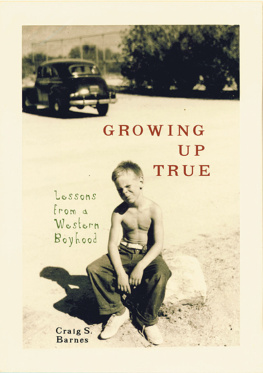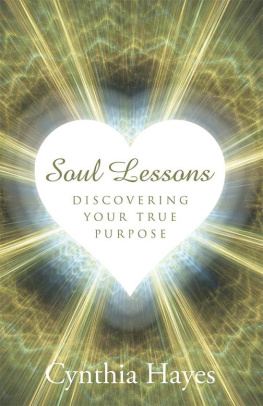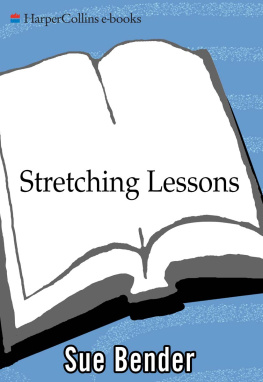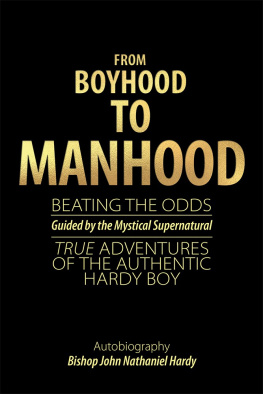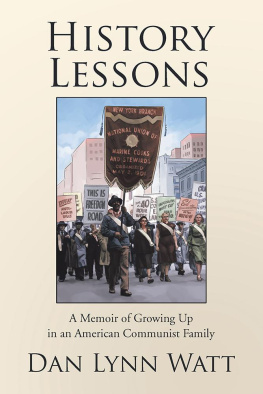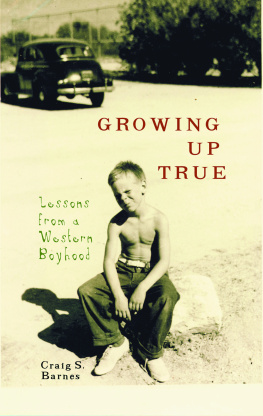Craig S. Barnes - Growing Up True: Lessons from a Western Boyhood
Here you can read online Craig S. Barnes - Growing Up True: Lessons from a Western Boyhood full text of the book (entire story) in english for free. Download pdf and epub, get meaning, cover and reviews about this ebook. year: 2001, publisher: Chicago Review Press, genre: Non-fiction. Description of the work, (preface) as well as reviews are available. Best literature library LitArk.com created for fans of good reading and offers a wide selection of genres:
Romance novel
Science fiction
Adventure
Detective
Science
History
Home and family
Prose
Art
Politics
Computer
Non-fiction
Religion
Business
Children
Humor
Choose a favorite category and find really read worthwhile books. Enjoy immersion in the world of imagination, feel the emotions of the characters or learn something new for yourself, make an fascinating discovery.
- Book:Growing Up True: Lessons from a Western Boyhood
- Author:
- Publisher:Chicago Review Press
- Genre:
- Year:2001
- Rating:3 / 5
- Favourites:Add to favourites
- Your mark:
- 60
- 1
- 2
- 3
- 4
- 5
Growing Up True: Lessons from a Western Boyhood: summary, description and annotation
We offer to read an annotation, description, summary or preface (depends on what the author of the book "Growing Up True: Lessons from a Western Boyhood" wrote himself). If you haven't found the necessary information about the book — write in the comments, we will try to find it.
Growing Up True: Lessons from a Western Boyhood — read online for free the complete book (whole text) full work
Below is the text of the book, divided by pages. System saving the place of the last page read, allows you to conveniently read the book "Growing Up True: Lessons from a Western Boyhood" online for free, without having to search again every time where you left off. Put a bookmark, and you can go to the page where you finished reading at any time.
Font size:
Interval:
Bookmark:
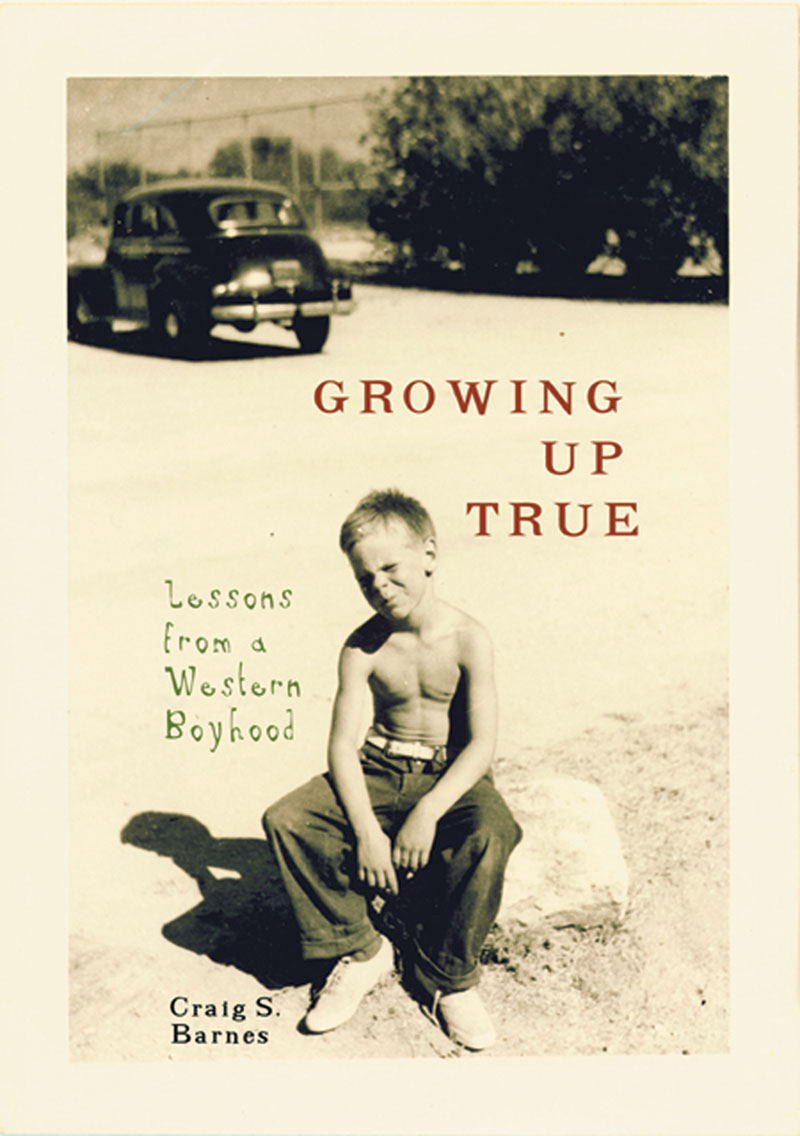
Copyright 2001 Craig S. Barnes
All rights reserved. No part of this book may be reproduced, stored in a retrieval system, or transmitted in any form or by any means, electronic, mechanical, photocopying, recording, or otherwise, without written permission from the publisher.
Library of Congress Cataloging-in-Publication Data
Barnes, Craig S.
Growing up true : lessons from a Western boyhood / Craig S. Barnes.
p. cm.
ISBN 1-55591-350-4
1. Barnes, Craig S.Childhood and youth. 2. Arapahoe County (Colo.)Biography. I. Title.
CT275.B4472 A3 2001
978.88203092dc21
2001002332
Printed in the United States of America
0 9 8 7 6 5 4 3 2 1
Editorial: Marlene Blessing, Lori D. Kranz, Daniel Forrest-Bank
Design: Paulette Livers
Cover photograph: The author as a young boy, taken by the authors mother, Thedia Barnes
Fulcrum Publishing
16100 Table Mountain Parkway, Suite 300
Golden, Colorado 80403
(800) 992-2908 (303) 277-1623
www.fulcrum-books.com
For Will, Lisa, Tom, and Molly
In the beginning was the word and just a little before that was Mrs. Fredrickson, who brought confidence and language to a lonely fourth grader afraid of his own gifts. In eleventh grade, Mrs. OConnor read Amy Lowell and Emily Dickinson, as if words and truth were locked together with pure beauty. Morgan Farley and Amy Rennert offered strong encouragement when the writing was beginning and the obstacles were great. My wife, Mikaela, fanned the flames of the writers life in our first love letters and has never stopped, over more than forty years, encouraging the writers craft. Without her encouragement, this book and most of the other good things in my life would have never happened.
Frank and Erik thought that a person could become a man if he was to fix fence, pull wire, skin logs, wear out the gloves. My mother thought that same person would develop moral character if he would carry water to her maple saplings. Not the close ones by the house, she said, but the far ones, over by Savages wheat. My father said a small person should learn to plan ahead, think a problem through, be lighthearted, cheerful, ready to help whenever needed. It would also be good to do the algebra homework, and geography, too, and it would be good to clean the barn, and it would be good not to be so sullen on just any old gray February afternoon.
Which was fine. But a man needs the thin edge of the sword every now and then. My father said, Well, forget the sword, this is not Horatio Hornblower country. Swing a sword around here and you might stick a chicken. So there was the real world and there was my world. I was ready to cast away on a frigate for the Indies, but the only water around was the Highline Canal, which was dry all winter and in summer washed up at City Park Lake in downtown Denver, definitely not the Indies. I wanted to twirl from a lanyard in a typhoon, maybe save a king. Nobody in Arapahoe County knew what a lanyard was, but it was right near there with great waves and winds and frigates and some kings and I liked the combination. Well, said the fatherwho substituted for king in most situationsthe rains come and the winds blow and the universe does not stand still for small boys who swagger. Cheer up and pull the weeds in the asparagus.
This is to say that in cottonwood country there was no way for an ordinary boy to become a man without serious mental bending. Frank said to skip the Woolworths candy: leave it lie, he said, and save your egg money for college. Erik said that if a person was to clean his chicken coop and keep the boards tight on the hog pen and keep the irrigation ditch cleaned, all on a regular basis, this would be a person who pretty much had the makings. Work and Erik were like slop and hogs. He thought it would be honorable to die of exhaustion. Get it done now wont have to do it tomorrow, he said.
It didnt make any difference, as far as I could tell. Tomorrow, there was always plenty of wire still to pull. Erik just naturally liked to sweat and huff and pull and yank on things. My father was a victim of the same attitude. He said, Try holding off acting brave and proud, swaggering your hips when you are only carrying water buckets to the pig. Brave and proud is not needed to slop the hog.
Out where we lived, the most important things were wheat and calves and a long walk under the cottonwoods to school. In spring the wheat greens up slow and in fall the leaves brown down slow. Summer races by too fast to get a grip before Fair is over and Curtis School begins its annual program of small-boy-mind numbing. I never saw a stagecoach hold up or a real shoot-out or a revolution to overthrow the Mexican government. We never discovered gold after 1858 and there had not been a calf rustling even in the memory of Mrs. Fredrickson, who had been teaching school longer than I had been alive. If Fredrickson did not know, it was not known. There was therefore almost nothing ever to be brave and proud about except sneaking up on ground squirrels or winning a horse race or surviving the great Big Bend suicide.
Still somehow I eked brave and proud from nothing. This is the story of how I did it. Other people have the fortune to grow up deprived. They can complain and snicker and dishonor the rich. We grew up lucky. Enough money for weekly hamburgers. Snickering generally disapproved of. Every advantage except one and this was permanent. I was the youngest. My two older brothers sat through and passed Mrs. Posts math class with flying colors, as if they were born to know certain stuff. They could also turn a lathe and they could ride Smoky the gray mare like Apaches on the wind. I could ride that mare until I hit the sharp turn at the Big Bend and fell off. I could not pound a ten-penny spike worth a darn. It was too big and I was too small. Things like that upset a man. Over the years it was pretty much the same. No matter how much smarter I got, my brothers stayed ahead, like lead cranes in a V going south and I flapping along behind.
My father said I could learn how cheerfulness comes from work, sort of like freedom from slavery. So this book is about how cheerful comes when a person is corral-gate high, until he gets to about the age where he starts pressing his Levis to impress certain people of the other type who stand by the fence and watch when he goes past. This is cottonwood and wheat country, the 1940s, the Great War just over. The time we got was borrowed from a world that was always fighting. My parents were trying to make me reasonably honest, honorable, hardworking, and humble. I was just a little too attracted by what is wicked and famous. It took awhile to get everybody stretching the same wire.
T HE R USSIANS CALLED IT the Great Patriotic War, a name far more hallowed than simply World War II, as if wars could be numbered without meaning, or as if we might say heres one, theres another one; this ones six, that ones seven. The Russians still speak about that conflict as if the history of the world turned upon that one great event. And they were right. At least they were right for me. It changed my history, too.
The Russians sent off 20 million, and I sent off only one. But I remember how that one was sent, and how it was the end of one time and the beginning of another.
I remember how the five of us were crammed into the 41 black Chevy, how we drove into the mountains for one last camping trip. How on Monday he would be gone. How this one weekend, this winter campout, was supposed to hold all the memory, hold all the love, be a symbol, be a metaphor, make the leaving be only physical, but not real, not in the heart, not where it mattered.
Next pageFont size:
Interval:
Bookmark:
Similar books «Growing Up True: Lessons from a Western Boyhood»
Look at similar books to Growing Up True: Lessons from a Western Boyhood. We have selected literature similar in name and meaning in the hope of providing readers with more options to find new, interesting, not yet read works.
Discussion, reviews of the book Growing Up True: Lessons from a Western Boyhood and just readers' own opinions. Leave your comments, write what you think about the work, its meaning or the main characters. Specify what exactly you liked and what you didn't like, and why you think so.

